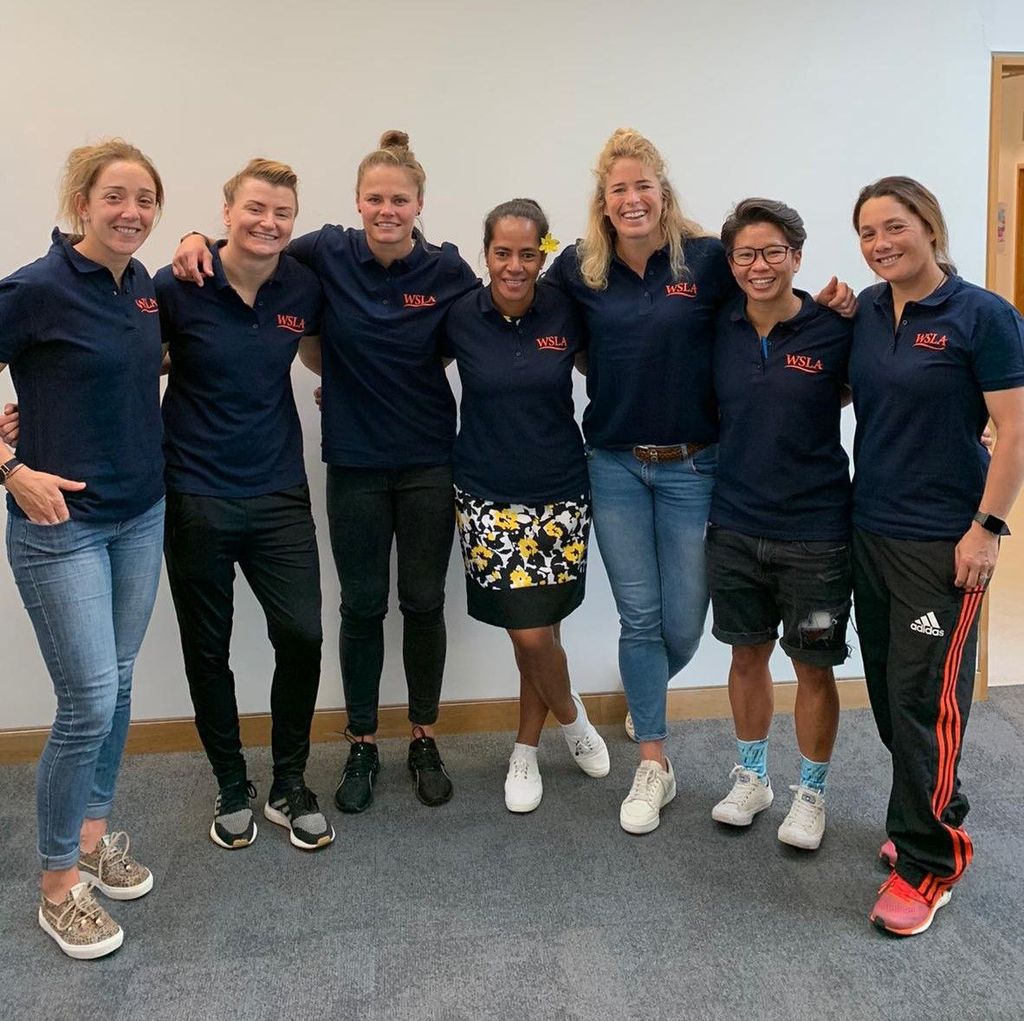To listen to Marithy Pienaar you might get the impression that her rugby career was the result of good fortune alone.
Having excelled at athletics at school, Pienaar was alerted to the camaraderie offered by team sports when she tried her hand at cricket and netball.
But it was rugby, a game which offered not only a sense of community but also an opportunity to test her physical attributes more robustly, that became her lasting passion.
Pienaar was fortunate to have supportive parents, and crucially the determination and drive to ring a list of prospective clubs to discover which ones offered women’s rugby.
“I was very lucky,” she told World Rugby. “I just phoned around and ended up at a casual women’s rugby day and I just started there.”

It was the beginning of a journey that would include university, provincial and ultimately international honours as a sevens specialist - all within the space of a year.
Pienaar hung up her playing boots in December 2018, bringing an end to a six-year Springbok Women’s Sevens career.
In that time the forward captained her country, appeared at Rugby World Cup Sevens 2018 and was named SA Rugby Women’s Player of the Year in 2016.
Pienaar also scored a try in the 2016 Hong Kong Sevens final as the Springbok Women became the first South African side to win a title at the event. It is an achievement that ranks as her most treasured in the sport.
'I think every school should have women's rugby'
The 28-year-old is well aware that the opportunities she enjoyed are not available to every woman in South Africa, but she is determined to help improve that situation having started her new life as a coach.
“The [women’s] systems aren’t really as strong as the men’s systems,” Pienaar said, “and we do struggle with numbers, especially higher teams.
“From under-17 up we really struggle with numbers, and we use crossover athletes to kind of come and help us out.
“So, I think the real big struggle is to start with the women’s programme, or women’s component, in primary school just to get it up and running.
“And I think that every school should have women’s rugby just as much as boys’ rugby, from under-nine level.”
Pienaar, who was one of seven female rugby coaches selected to participate in the inaugural Women’s Sport Leadership Academy for High Performance Coaches (WSLA HPC) in November, has already begun putting some of those systems in place through her work for Caylix Sport.
“Next year we’re opening the girls’ academy, so we’ll have two girls’ academies running from next year,” she said.
“I do think in some communities, in some neighbourhoods, people are really working hard to kind of get women’s rugby going.
“Especially because sevens is an Olympic sport, so people want to associate themselves with it and start something. So, definitely it’s growing at a pace that we want it to.”
Meeting her scholarship family
Pienaar travelled to England at the start of November for the first of two residential sessions as part of the WSLA HPC, which is a pilot programme run in partnership with the International Olympic Committee (IOC), meeting up with 24 female coaches from six international federations.
“That was awesome to say the least,” she said. “It was very cool.
“The whole week was pretty well organised. The facilitators and the organisers knew exactly what they were doing and the knowledge behind everything is actually pretty huge.
“I think all the girls grew together and we kind of formed a family, literally, within a week.”
Although Pienaar only retired from playing last December, she had long targeted a career in coaching and throughout her time with the Springbok Women’s Sevens she helped run youth coaching clinics.
Being able to plan and prepare for life after playing has ensured that the transition period has been as smooth as possible.
“The fact that I knew that it was something that I was doing for six years, it was kind of part of me,” Pienaar explained.
“So when I had to coach and I had to share my knowledge and my experience, it kind of came as second nature.
“I think [going] from playing to coaching, you kind of still want to play so you sometimes find yourself running around with the boys! But I think it was very natural to make the transition.”
Laying foundations
Pienaar has returned home to Stellenbosch, in South Africa’s Western Cape, where she will fit her commitments on the WSLA HPC around her work as a head coach and project manager at Caylix Sport.
She will be back in England at the end of next year for the second of the residential courses, but as she looks further into the future Pienaar hopes she can play a role in creating and sustaining playing pathways for women and young girls in South Africa.
“If everything goes to plan then, obviously, there’s enough systems in place and we get a proper feeding system for the national team,” she said.
“We’re playing catch-up at the moment so I don’t think we’ll ever be at the level of New Zealand or Australia but definitely the gap will become smaller between us and them if there are proper systems in place.”
And perhaps, South Africa’s Rugby World Cup 2019 champions might have a part to play too.
“The fact that they won it laid another foundation for more people to want to get involved [and] either play sevens or 15s,” Pienaar added.
“I think overall, women and men, people want to associate themselves with winners.”






